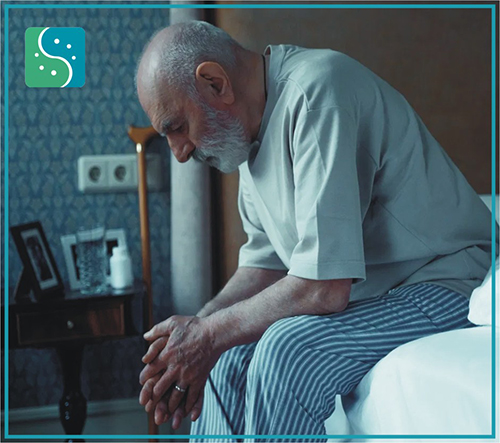BENIGN PROSTATIC HYPERPLASIA also called BPH is a condition in men in which the prostate gland is enlarged and not cancerous. Benign prostatic hyperplasia is also called benign prostatic hypertrophy or benign prostatic obstruction.
The prostate is a small, muscular gland in the male reproductive system. Your prostate surrounds your urethra and makes most of the fluid in your semen. The muscular action of the prostate helps propel the fluid and semen through your penis during sexual climax.
The prostate gland rests below your bladder and in front of your rectum. It’s about the size of a walnut, and it surrounds part of your urethra. Your urethra is a tube that carries urine (pee) and sperm (ejaculate) out of your body.
In many men, the prostate can become enlarged. Sometimes it leads to symptoms and, over time, other complications. However, there are treatments.
Homoeopathy has safe and gentle treatment for the symptoms of prostate enlargement associated with urinary problems. As it is the aging process which causes its enlargement, homoeopathy works at the deep constitutional level, brings back these deviations to normal, thus preventing further enlargement. Homoeopathic medicines for prostate enlargement can potentially save a person from surgical intervention. These medicines help manage symptoms of BPH and also work in halting further progression of the complaint.
Benign prostatic hyperplasia (BPH) is a condition in which your prostate grows in size. If your prostate grows in size, it can prevent pee and ejaculate from passing through your urethra.
Your prostate surrounds your urethra. When BPH causes your prostate to grow, it can cause blockage in your urethra. As a result, early symptoms of BPH include:

BPH is considered a normal condition of aging. Although the exact cause is unknown, changes in male sex hormones that come with aging may be a factor. Any family history of prostate problems or any abnormalities with your testicles may raise your risk for BPH.
People with a long-standing history of BPH may develop the following complications.
Sometimes, urinary obstruction from BPH is so severe that no urine can leave the bladder at all. This is called bladder outlet obstruction. It can be dangerous because urine trapped in the bladder can cause urinary tract infections.
When checking you for BPH, your doctor will usually begin by doing a physical exam and asking you about your medical history. The physical exam includes a rectal examination that allows the doctor to estimate the size and shape of your prostate. Other tests can include.
You can do things at home to help control the symptoms of an enlarged prostate. Try to make healthy diet and exercise changes.
Also try these bathroom habits.
Other things that might help include:
Prostate cancer is a common type of cancer that develops in your prostate gland. Early-stage prostate cancer rarely causes symptoms. However, as it progresses, it shares many of the same symptoms as BPH. These symptoms include a weak urine flow, pain when ejaculating or peeing and frequent urges to pee. Prostate cancer may spread to your bones, lymph nodes or other parts of your body. Treatment options include radiation therapy and surgery.
BPH symptoms are similar to prostate cancer symptoms. However, BPH isn’t cancer, and it doesn’t increase your risk of developing cancer. It won’t spread to other parts of your body. Treatment options include medicines, surgery and minimally invasive procedures.
Benign prostatic hyperplasia is a very common condition that affects men. Many men have found relief for their complaints of prostate enlargement and associated urinary symptoms in homoeopathy. Homoeopathic medicines are prescribed after studying the patient’s complete case history. It brings back the body’s natural balance and thus can save the person from undergoing surgery and halts further enlargement of prostate gland.